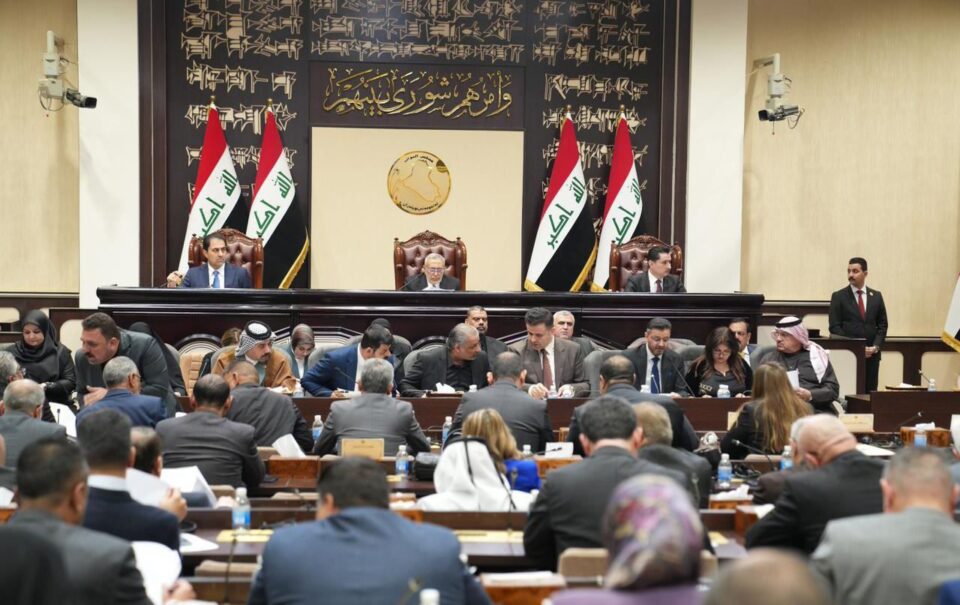The approval of Iraq’s budget amendment law paves the way for financial stability, oil exports, and strengthened ties between Baghdad and Erbil.
Iraqi and Kurdish leaders have welcomed the approval of the amended federal budget law, describing it as a crucial step toward resolving longstanding financial disputes and reviving oil exports from the Kurdistan Region. The move is seen as a milestone in strengthening economic cooperation and political stability between the federal government in Baghdad and the Kurdistan Regional Government (KRG) in Erbil.
On Sunday, February 2, 2025, the Iraqi Parliament voted by majority to approve the Federal General Budget Law and its key amendment, Article 12, which facilitates the resumption of oil exports from the Kurdistan Region. The decision was met with positive reactions from the highest levels of both governments, with leaders emphasizing its importance for the economy and public sector employees.
KRG Prime Minister: A step toward resolution
The KRG Prime Minister Masrour Barzani described the approval as a “significant achievement” during a meeting with the region’s negotiation delegation. Barzani commended the delegation and technical teams for their efforts in securing the Region’s financial entitlements and ensuring the inclusion of Article 12, which addresses oil exports. He emphasized that the law’s passage could serve as a foundation for resolving other outstanding issues between Erbil and Baghdad.
The KRG Council of Ministers, chaired by Barzani, convened on February 5 to discuss the implications of the budget law. The Council welcomed the approval of Article 12, which mandates the resumption of oil exports from the Kurdistan Region, and tasked the Ministry of Natural Resources with coordinating efforts to restart exports swiftly. Barzani expressed gratitude to Iraqi Prime Minister Mohammed Shia’ Al-Sudani, Kurdistan Region President Nechirvan Barzani, and other federal and regional officials for their roles in reaching the agreement.
The amendment, which establishes a temporary production and transportation cost of $16 per barrel until an international advisory body determines a fair price, requires the Kurdistan Region to deliver 400,000 barrels of oil per day to Iraq’s State Organization for Marketing of Oil (SOMO). The revenues from these exports will be directed to the federal treasury.
Kurdistan Region President: A path to further agreements
President of the Kurdistan Region Nechirvan Barzani also welcomed the approval of the law, expressing optimism about future negotiations.
“We hope this step will be the beginning of resolving other issues and that good news regarding the permanent resolution of salary and financial entitlement issues in the Kurdistan Region will follow soon,” Barzani stated.
Iraqi Prime Minister: Enhancing stability and economic growth
Iraqi Prime Minister Mohammed Shia’ Al-Sudani reaffirmed his commitment to implementing the amendment swiftly, underscoring its importance for Iraq’s economic stability and growth. In a statement released by government spokesperson Basem Al-Awadi, Al-Sudani urged immediate action:
“The government calls on the KRG and all relevant federal oil institutions to immediately begin implementing the amendment to improve the management of natural resources, particularly oil. Let these resources become a factor for supporting stability and a driver for fulfilling more plans and programs that meet the needs of the Iraqi people.”
Al-Sudani emphasized that the agreement ensures a steady flow of oil revenues while addressing the concerns of international oil companies operating in the Kurdistan Region.
International reactions and future prospects
The budget law’s approval has also drawn positive reactions from international stakeholders. During a joint meeting between Iraq and the European Union, Dlawer Khalid Aghaidi, the KRG Representative to the EU, described the amendment as a “positive step” toward resolving oil-related disputes. EU representatives welcomed the decision, emphasizing its importance for political stability in Iraq and commending both sides for resolving issues through dialogue.
Key provisions of the budget amendment
The budget amendment includes critical provisions aimed at facilitating financial cooperation between the Kurdistan Region and the federal government. Among the most notable elements:
- The Federal Ministry of Finance will reimburse the Kurdistan Regional Government for sovereign expenses related to production and transportation costs of oil marketed by SOMO.
- An international advisory body will be appointed within 60 days to assess fair production and transportation costs for each oil field.
- Oil-producing companies in the Kurdistan Region will be compensated, ensuring their continued operations and investment in the sector.
Reactions from Iraqi and Kurdish lawmakers
Jamal Kochar, a member of the Finance Committee in the Iraqi Parliament, described the amendment as a necessary step to resolve disputes over oil production costs and contractual obligations.
“This amendment provides clarity on production costs, ensuring a fair process for all parties involved. Additionally, it strengthens Iraq’s oil export capabilities by diversifying routes, reducing economic risks in case of disruptions in the southern ports,” Kochar stated.
Legal expert and parliamentarian Dara Sekaniani noted that while the amendment is legally binding upon its publication in the Official Gazette, the actual implementation of oil deliveries remains a separate challenge.
Implementation challenges and next steps
The KRG has already taken steps to begin implementing the budget amendment. Prime Minister Masrour Barzani directed Kamal Muhammad Salih, Acting Minister of Natural Resources, to initiate discussions with the Iraqi Ministry of Oil, SOMO, and oil companies operating in the Kurdistan Region.
A senior official from the KRG Ministry of Natural Resources stated: “We are awaiting a response from the Iraqi Ministry of Oil to determine the next steps. The negotiations could take place either in Baghdad or Erbil, but we anticipate progress within the next week.”
The official emphasized that the KRG is eager to restart oil exports as soon as possible, in compliance with the newly approved budget amendment.
The Kurdish Globe

